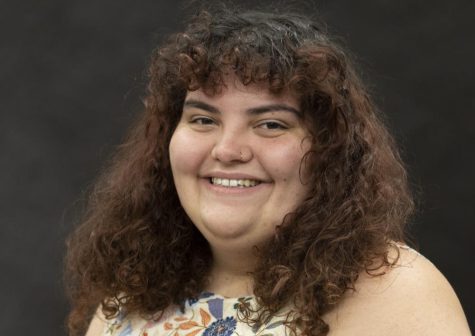Department chairs talk spending regulation in response to State of the University Address
October 6, 2019
During his speech Thursday Eastern President David Glassman discussed the need for departments to continue regulating departmental expenses.
During the 2015 to 2017 budget impasse departments had to cut back on spending and make sure their spending was fiscally responsible.
Glassman said departments should continue to regulate spending and only spend money when necessary.
“We must once again firmly and dedicatedly commit to regulating our expenses. All divisions across the university will see familiar limitations on spending and travel, and the procurement of only essential equipment and supplies necessary for the current year,” Glassman said.
“It is paramount that we continue to be responsible stewards of our still-limited resources to remain on the pathway to institutional strength and sustainability.”
Angela Vietto, chair of the English department, said her department has become accustomed to spending cautiously but the department is not greatly impacted by more heavily regulated spending.
“We’ve been managing our spending through the budget crisis; we’ve never overspent to my knowledge,” Vietto said. “This is not a change in any way for us. We just live within our budget.”
A department that regulated spending has had a larger impact on is the Department of Art and Design.
Chris Kahler, chair of the art department, said one way the art department has been impacted is not in the classroom but in promoting the department.
“Really what have to try to do is completely cut back on all our more promotional kind of materials as well as any extra spending that we might have to do throughout the year,” Kahler said.
“We have course fees that obviously are done for almost all of our classes, so that is a separate kind of budget item. That is protected, so that is fine.”
Kahler said he is used to regulating spending within the art department. He became department chair in 2015 when the budget impasse was beginning.
“Because I’ve been under these conditions for the last three years it’s nothing new to me, but I think the cutbacks for us that we’ve seen the most impact is probably not being able to do more faculty travel and helping them with their research and also helping pay for students to do special trips, so really that’s where we see a difference,” Kahler said.
Kahler said he has appreciated all money that has come the department’s way.
“For me anything was wonderful and so what (the impasse) did is it caused me to immediately be very frugal,” Kahler said. “I had to make sure that everything was fiscally responsible but at the same time we tried to do the best that we could to maintain the high standards of our department.”
Kahler said he feels like there hasn’t been much progress since the end of the impasse.
“To be honest I feel like we’re still about the same but I think what (the impasse has) done is it’s made our department much more resourceful and we have not diminished the quality of what we do in the classroom,” Kahler said.
Kahler said the biggest impact in his department relates to computers.
“I know for a fact 15 or 20 years ago we weren’t worried at all about updating computers because we could do it pretty often and unfortunately that’s an area where the university really struggles,” Kahler said.
Shellie Gregorich, chair of the music department, said she has few concerns about regulating spending but she is concerned about computer updates as well.
“Our computer inventory is pretty old but it’s plugging along with new RAM and things like that but at some point, there’s going to be a need to replace a lot of computers all at once because we haven’t been able to maintain a nice, even, steady replacement schedule. So we’ve just been kind of pushing some things off,” Gregorich said.
Gregorich said another concern she has is things that have been put off due to more heavily regulated spending.
“Hopefully at some point we will have an increase and it would be nice to be able to purchase some things, we’ve had to put some things on hold but at some point those things are going to need to be addressed. At some point the marching band uniforms will wear out and that’s a huge expense to replace them.”
Kahler said he is hopeful for the future.
“I think there’s no way but to be optimistic that things will gradually get better, I think all of us knew that this would maybe be about a 10-year fix, maybe 10 to 15, before we really feel like we’re in a much more comfortable position,” Kahler said. “Enrollment is really going to be a key factor in how we do this but also the State of Illinois in how we’re going to be funded, and in the mean time we’re going to have to work within our means.”
He added he feels like the impasse has not had a major impact on his department.
“I’m very proud to say that I don’t feel that what we do has ever been hindered. I think we have high-quality faculty that do the best they can with everything they have and the only thing that would really make a big difference would if we had more opportunities for student funding to help them more with scholarships and do much more than we already do and that’s where a stronger university would really come in handy,” Kahler said.
Corryn Brock can be reached at 581-2812 or at [email protected].














































